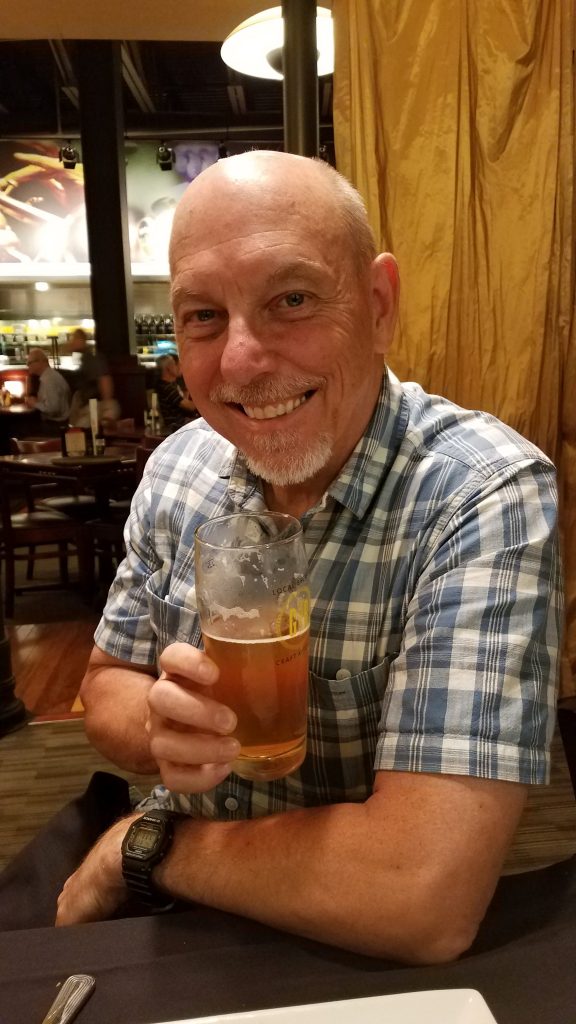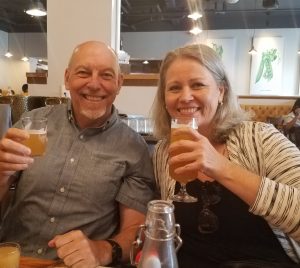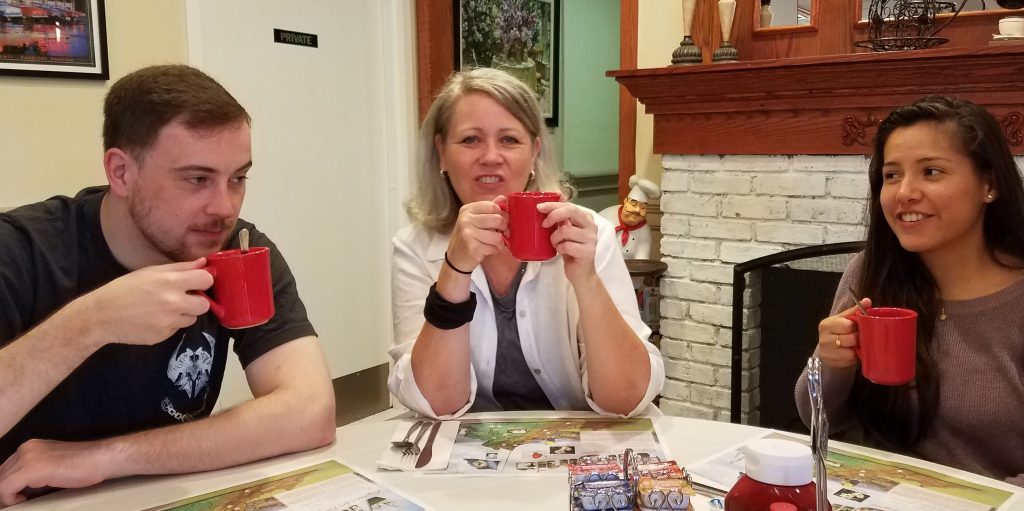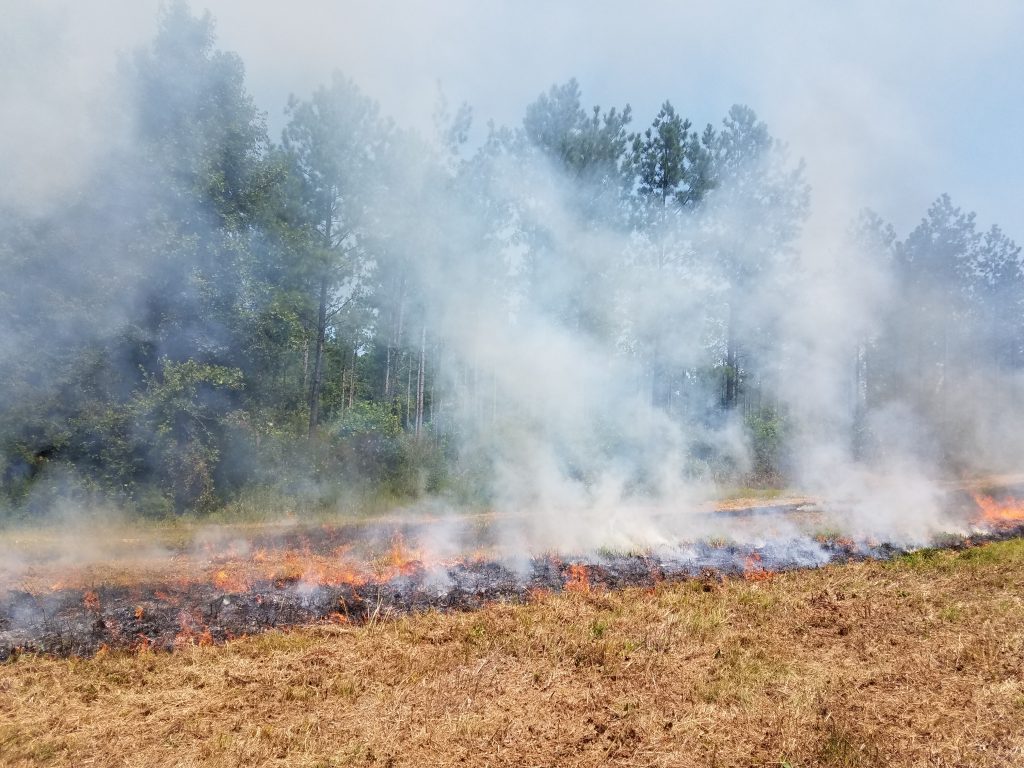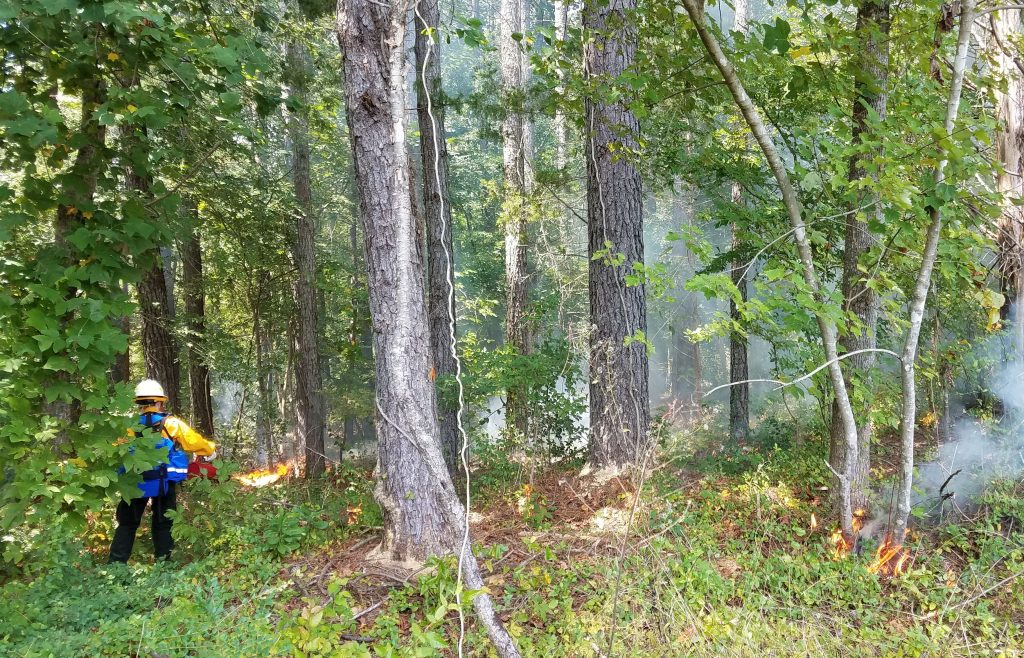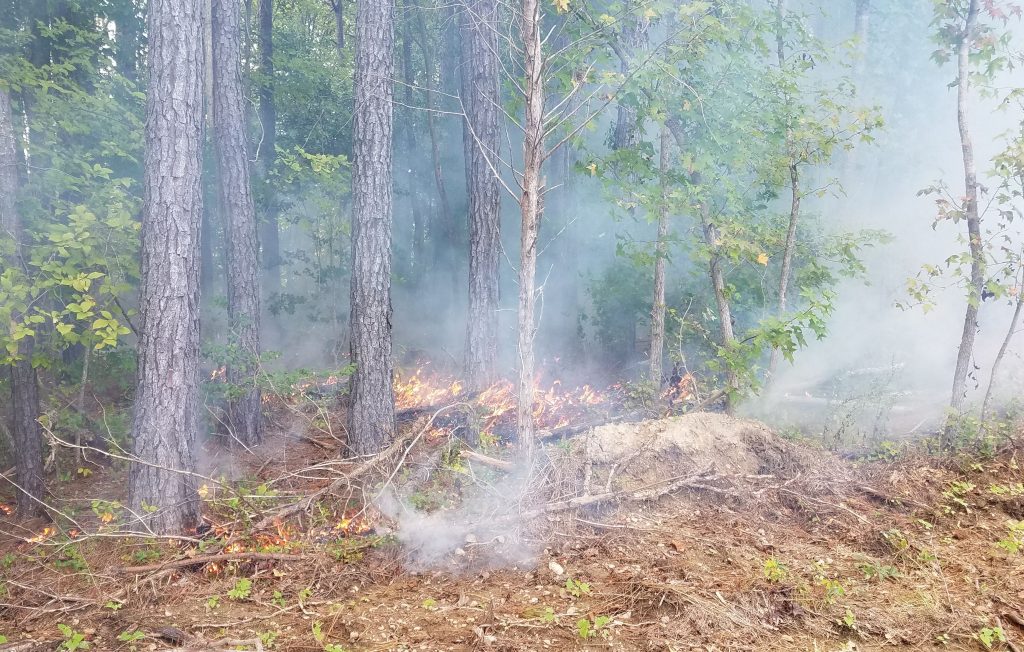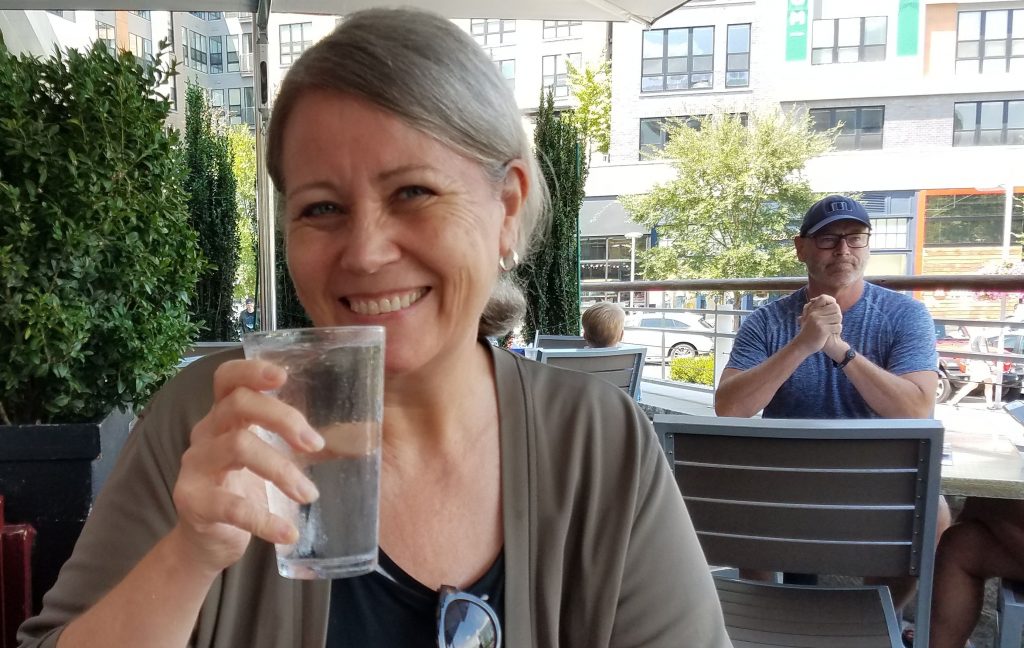What I liked most about my work in the Foreign Service were the opportunities to for interaction with other systems and cultures. I used historical-anthropological method and came up with lots of insights beyond the simple joy of doing the work, but I always kept in mind the limits of my understanding. I was always an outsider and should never let myself believe otherwise.
We cannot be objective
And my interpretations were very much colored by my own perspective. Even if I was somehow able to recall and report what people told me w/o any of my own interpretations (not possible, BTW), the questions I asked would shape the narrative. I noticed that my “memorandums of conversation” had lots of commonalities no matter the variety of people I met. There is no way around this. We cannot be objective. The best we can do is to broaden our outlooks. Despite the limitations, the insights are sometimes useful for others and almost always enlightening for the one making the observations. It is way to personal growth.
Life and times of Franz Boas
“Gods of the Upper Air” spoke to these concerns. The book is essentially a life and intellectual times of anthropologist Franz Boas and his students. It made me wonder about my own methods. I studied anthropology in college. I remembered reading Franz Boas, but remembered nothing specific besides the name. Nevertheless, it is likely that I internalized some of his ideas and methods, his emphasis on boots-on-the-ground observation and the need to look at cultures on their own terms w/o too many generalizations. When Boas was asked to generalize, the generalized only that people cannot use what they do not have.
Cultural relativism
The Boas groups believed in cultural relativism. I don’t buy the whole relativist idea. Rather, I think of culture in an ecological paradigm. Everything depends on the factors of the environment. Some cultures are better adapted to the current situation. They all have equal “value”, but they are not all equally valuable. But I cannot blame Boas. There has been a lot of advance in biological sciences as well as just experience since his time.
Marget Mead
Boas’ most famous accolade was Margret Mead. She was maybe one of our most influential anthropologists. She was mostly wrong about details. As the book outlines, she found what she was looking for rather than what was when doing her work in Samoa. She fell victim to the biases I described up top. The additional problem is the people you meet. The people outsiders are likely to meet are probably not the people who really know best.
… and Frasier Crane
Think of an anthropologist trying to understand the USA by hanging around in a bar and talking to the people there. The image that came into my mind was that old comedy series “Cheers,” the place where “everybody knows your name.” I think of the sophisticated and erudite Frasier Crane observing the natives. He might produce a better narrative, but it would be his narrative and maybe useful but not the truth.
The book is more joint biographies than anthropology. The members of the Boas circle were all weird. They were misfits in their own societies, which is maybe why they looked for meaning in others. Now I don’t know how much of this is the product of the narrative of the book and how much is how it was.
Taking it personally
The great thing about this book for me was the thoughts it provoked. I know this is very personal. I thought back to my education in history and the importance of evidence and narrative. I learned to “do” history in the tradition of Leopold von Ranke, with emphasis on primary sources and evidence and lack of confidence in unifying theories of history. Yes, I know it is old fashioned, but I still am a true believer in that method, adding to that the boots-on-the-ground imperative. Where I part company, however, is with the idea that we can find the truth, as Ranke said history as it really was.
But while we cannot find the truth in an absolute sense, we should continue to search for it, so that we can reject things that clearly are not true and so that we can come closer to at least a useful truth.
I am drifting from the book, but maybe that is the sign of a good book. I recommend it for those who studied anthropology and maybe even more those who did not. Lots of our routine ideas are influenced by these guys, whether we know it or not.
I wonder if my friend and colleague Rick Roberts knows this book.
Chesapeake Porter at Gordon Biersch
Went to Gordon Biersch for a party featuring Chesapeake Porter, beer made according to an old recipe.
We got a short lecture about lagers and ales. Lagers are made a lower temperatures and have a crisper flavor.
In the old days, beer was generally dark. A big reason was that technologies were not well developed and the darker beers were easier to make. They also hit impurities better. As tech improved, it because easier to make lighter beers. As clear glass cups came to replace mugs or steins, people could see their beer and liked it clearer.
The New Geography of Jobs

Sorry, cannot blame Trump
Some parts of America are doing very well; others are okay, and some are in serious decline. This is a long-term trend, not something we can blame on the policies of any president. And it is an international trend, not something we can blame America, and – something I need to add at this controversy plagued juncture, this book was written in 2012, so we cannot blame Trump.
Three Americas, only one prospering
Moretti talks about the three Americas. We have become much more integrated racially and ethnically. There are few completely black neighborhoods left in America and probably no completely white ones. Most neighborhoods have their share of immigrants. But we have become much more segregated in terms of economics of opportunity. This goes beyond average incomes, although income is a big factor. It is more the difference between communities that are going somewhere and those that are going nowhere.
First a stipulation. Nearly everybody has become more prosperous in strictly material terms because of general enrichment over recent decades. Some communities, however, have gotten a lot more of the gains than others have. The three Americas are those who are racing into a bright future, those that are just standing still and those that are declining in relatively in terms of material prosperity and in absolute terms in relation to human capital, as well as intangibles such as hope and spiritual strength. These communities are breaking down and not providing the sense of community the people need.
Skilled jobs and skilled workers
Moretti mentions economic reasons why this has happened, the usual changes in the means for production, international competition and automation. American manufacturing produces more than ever before, but it does so with many fewer workers. As automation has replaced workers, those workers who remain need to have higher level skills. There are fewer and fewer jobs available for unskilled workers. Gone are the days when a man could graduate high school, or not even that, and then walk into a decent job. This is good. This is the basis of productivity. It encourages people to improve their skills and work at jobs are more interesting and fulfilling, and ones more likely to pay better. The problem is that not enough of these jobs have become available and not enough workers are qualified to get them.
Highly skilled labor force and highly skilled jobs are a chicken-and-egg problem. Moretti talks about the places that are very attractive and prosperous. These places have both a lot of well-paying skilled jobs, many involving innovation, and they have a lot of skilled and innovative workers to take those jobs, what they call a thick labor market. Once a region has achieved this happy situation, it usually is self-catalyzing, as better jobs attract skilled workers and skilled workers attract or grow firms that employ skilled workers. Such places also benefit less skilled workers. Job prospects even for unskilled workers are better and they are paid more. There is a spillover, positive externalities. Skilled and educated workers produce conditions that improve the general environment.
Can we create these environments?
How to achieve this wonderful balance, however, is not known, although there are lots of theories. Good communities always have an infrastructure of prosperity – theaters, restaurants, brewpubs, nice shops, parks etc. Some think that communities need to provide lots of amenities loved by the “creative class.” This idea is based on two related suppositions. One is that if you have the creative people, creative jobs will follow and the other is that it is the pleasant things that attract them. Unfortunately, this does not always work. Moretti gives the example of Berlin, which is very pleasant for the creative class, with lots of parks, orchestras, restaurants etc. Berlin has relatively low rates and has indeed attracted lots of educated and creative young people, but it has done this w/o creating or attracting creative jobs. Instead, Berlin lives off tourism and government. There are lots of “creatives” living in a type of genteel poverty. (This made me think of Madison, Wisconsin, when I went to college there. We used to joke that you needed a PhD in philosophy to tend bar in Madison, and a taxi license required at least a PhD in history.)
A better-known strategy is for local governments to try to attract firms that will bring with them jobs. State and local governments spend or concede vast resources to get firms to move in. Research shows that this does not work in the long-term. It makes the firms richer, but the money spent could have produced more jobs if they just opened some brew pubs (my addition).
Researchers and leaders study successful innovation clusters and try to copy what they did or have. The problem is that it is easy to see AFTER but maybe what we see was not the cause. For example, ALL successful innovation clusters are near universities. This is not helpful as a predictor, however, since ALL major American communities are near universities.
One thing that seems to work is to have some active and competent individuals. There is no golden rule except persistence. Moretti talks about the growth of biotech clusters. The ones that developed were no better situated than hundreds of others. What they did have at one or more local universities were superstars, people who attracted others. Smart people like to be around other smart people and they attract each other.
You start to be like those you hang out with
Parents often worry that their kids will be negatively influenced by the people they hang out with. This can be good too, if the crowd is good. Clusters tend to have people who pull up others.
Perhaps the best local leaders can do is to run their jurisdictions competently and in ways that create good quality of life for as many as possible. Good education generally is important, but aiming at any particular firm is not practical, since there is so much change. By the time your educated workforce is ready, the situation is very different.
This is a good & interesting book. I think that after (or before) reading the “New Geography of Jobs” it might be useful to read “The Smartest Places on Earth” that talks about renaissances in some of the former rust belt places. I don’t think the one contradicts the other, but they complement and fill in weak spots.
Busch Gardens
Went to Amber Ox in Williamsburg with Mariza & Brendan. We will go to Busch Gardens tomorrow.
We have enjoyed Busch Gardens since the 1980s. I still enjoy the roller coasters, but I find my advancing age pounds me harder, so I cannot stand to go time after time. A nice thing is that Busch Gardens is pretty. It is a garden, as the name implies. I also appreciate the landscape planning. The park is compact, but you get the impression of significant distance as you pass from one of the theme areas to another.
Whole family went down to Busch Gardens. I like Busch Gardens more than most amusement parks because it is really a garden. They do an excellent job of keeping the trees and plants healthy. In one of my pictures you can see their horse pasture. I noticed that the large white oak in the middle is very robust.
It has a European theme, going from England, Ireland, Scotland, Germany, Italy & France, including New France, i.e. frontier Canada. It is well laid out, giving the impression of more space than is actually there. Such parks are good places to test out theories and practices of urban planning.
We spent a lot of time in the Festhaus in Germany with the beer and brats.
I enjoy the roller coasters. Unfortunately, my body is not as resilient as once was and if I go too much I get queasy headache. But I enjoyed twice on Apollo’s Chariot, once each on the Griffin and Invader. Apollo’s Chariot and Griffin both feature an exciting initial plunge. You go straight down and cannot see the tracks. It is worth the extra wait to be in the front car for that reason.
We stayed overnight in Williamsburg. Watched “Fast and Furious 7”. I generally dislike car movies, but this one was fun because it was self-aware and made fun of its own excesses. In one scene, the cars drop out of an airplane and the drivers seem able to steer while falling through the air. In another Dwayne – “the Rock” – Johnson needs to help his friends. He has a broken arm, but flexes his massive muscle and breaks out of the cast. After that, former broken arm not hindering, he takes a 50 caliber machine gun and shoots up various bad guys.
Brendan seems a real expert on these movies and his commentary was useful. Chrissy & I are now going to watch “Fast and Furious 8,” which is widely acknowledged to be the best of the genre. And we have on the list to watch “Hobbes and Shaw”, where the Rock (Hobbes) teams up with erstwhile bad guy Shaw to stop a rogue British agent, who coincidentally is Shaw’s sister. Can’t wait.
“Hobbes & Shaw” is designed to further the “Fast & Furious” franchise while icing out Vin Diesel. The word is that he and the Rock get along poorly. Vin rightly sees the Rock as a bigger and better version of himself. The Rock has real charisma, while Vin is just ersatz. Who knew there was so much to know?
Slavery
The anniversary of the introduction of slavery to the English colonies in North America inspired me to think a little more about how and why it was abolished. This is a more interesting question. Slavery in some form was universal until it suddenly (in terms long history) it was largely abolished in the course of a few generations.
You cannot get far talking about abolition w/o considering William Wilberforce. The Wikipedia entry featured a paragraph I found especially interesting.
“In the 1940s, the role of Wilberforce and the Clapham Sect in abolition was downplayed by historian Eric Williams, who argued that abolition was motivated not by humanitarianism but by economics, as the West Indian sugar industry was in decline.Williams’ approach strongly influenced historians for much of the latter part of the 20th century. “
I see no contradiction here. Economics, the great enrichment and the market revolution, enabled the implementation of the moral revolution pushed by leaders like Wilberforce.
Moral leaders in many past societies inveighed against forced labor, but never succeeded over large areas of for long periods of time. Maybe they failed not only because they could not convince enough people of the righteousness of their cause, but also for the practical reason that the world – all the world – was too poor and poorly coordinated to allow it.
We take for granted the wealth and capacity for progress we now enjoy. We often are unaware of the quantum change humanity experienced from around the middle of the 17th Century. The leap is ongoing and accelerating, but a lot of the basic ingredients came into being in the roughly two centuries from abound 1650-1850.
Reasonable people might disagree about the precise time period, but this encompasses the establishment of the scientific, democratic & market revolutions. We can point to individuals like Issac Newton, Gottfried Wilhelm Leibniz, Adam Smith, David Hume, John Locke, and many more, but the remarkable things was the combination. Ideas passed from science to society to morality to philosophy to politics.
These sorts of ideas created the United States and it was in the USA that many of them best developed in a practical sense.
In 1550, abolishing forced labor was just beyond that capacity of any society because of their lack of wealth in all senses. They had not developed the technologies of production (engines, mills, precision techniques) to make stuff. They had not developed the technologies of the mind (differential calculus, scientific theory) to allow what we call progress, had not yet developed the technologies of administration (statistics, limited liability corporations, communications) to allow modern economies or the technologies of governance that allowed countries to put it all together.
All these things enabled a higher morality. Our ancestors, the people of the past could produce wonderful structures, great literature and impressive philosophy, but their physical and intellectual technologies did not permit them to take the steps we can and that our more recent ancestors could and did.
A note on Wilberforce. He should be better remembered.

en.wikipedia.org William Wilberforce – Wikipedia William Wilberforce (24 August 1759 – 29 July 1833)[1] was a British… 3
The Assault on American Excellence

The legacy of liberalism
More than anything else, liberalism was responsible for the great enrichment that pulled humanity out of the poverty trap that has afflicted people always and everywhere from prehistoric times until just a few centuries ago. Liberalism was the instrumental in the scientific, democratic and market revolutions that created our modern prosperity. W/o liberalism, slavery would not have been abolished, our free market democracies could not have flourished and our great universities could not have developed into the innovative and free places they became. The last of these, or more accurately the danger of losing it, is the subject to the short book “The Assault on American Excellence,” by Anthony Kronman.
Let me add a note for both my liberal and conservative friends. The liberalism we are talking about here is not closely related to political liberalism. American Liberals and American Conservatives are both equally heirs to the small l liberal tradition. In fact, the use of the term liberal in the USA tends to confuse foreigners, since parties that call themselves liberal in Europe often tend to resemble moderate Republicans and the term “neo-liberal” refers to free market liberalization.
Back to the book.
Politics versus scholarship
The author is careful to make distinctions that we often ignore. A big one is the distinction between politics and scholarship. In politics, Americans generally believe in democracy and equality. Nobody’s vote should count for more than others. We decide by majority rule and we are generally suspicious of anybody who claims special expertise. Beyond that, winning is important. A political party is not seeking objective truth, but rather seeking to persuade, cajole or even intimidate people into supporting their candidate or platform. This is the opposite of what is true (or should be true) in scholarship.
Scholarship is by its nature hierarchical. All opinions are NOT assumed to be equal and decisions are not achieved by majority vote. Scholarship seeks truth, stipulating that the final truth never available to the mortal man. A university is elitist and maybe even anti-democratic, and we need institutions that are elitist and anti-democratic in a functioning pluralistic democracy.
Islands of excellence
Kronman makes the analogy of islands of aristocracy in a sea of democracy. I thought his choice of wording would get him into trouble, as many people will read that far and dismiss him as elitist. It is useful to read on. He is arguing for true diversity.
I would describe is islands in a way that I know is more obscure, but I think more accurate. These are like the “sky islands” of the Southwest Deserts. As the climate got warmer and drying after the last ice age, plant and animal communities adapted to the cooler and wetter environments moved north and up the mountain sides. Today if you go to the Southwest, you can find remnants of forest and biotic communities on the mountains. There is glorious diversity different from the many miles around.
This true diversity of the university – the diversity of ideas – is being eroded by the bogus diversity of identity and the general democratization of inclusion.
Excellence versus inclusion
Kronman traces the problem to the Bakke case in 1978. Bakke argued that he was denied admission to the University of California Davis medical school because of his race. He was technically correct. The school had set aside a quota of places for minority applicants. Had Bakke not been white, he would have gotten in. The Supreme Court declared quotas illegal but opened the door to a broader diversity standard. This made sense, but it opened the door for the mendacious system we have today and created all sorts of collateral damage for scholarship.
Kronman describes himself as liberal. He marched against the Vietnam War and has always supported Democrats for office. He saw no problem with a quota system, since it was transparent and could be justified based on past wrongs. It also could have a limit based on results. For example, in 1978 Asians were included in the quota as underrepresented minorities. This is no longer applicable, and Asians are among the chief victims of current affirmative action programs.
Diversity of ideas matter; others are mere proxies
The problem with the diversity argument, besides its mendacity, is that it is open ended, and it freezes people into identity, exactly what university is supposed to break down. Student are expected and sometime expect, to be “representatives” of their group, rather than scholars seeking to improve themselves and seeking truth. They are encouraged not to engage, but rather assert of message.
Kronman does not dismiss identity, emotions or peculiar points of view, but he says that they cannot be used to stop the discussion or as a trump card. For example, you might have as special point of view because of your experience. You might say, “as someone with this experience, this is my view.” BUT you cannot expect that experience to be accepted as proof. Rather you need to explain and make the other understand. If you believe your experience is so unique that it cannot be shared, at least intellectually, it is valueless in the greater search for truth.
Marketplace of ideas versus seeking to improve them
Kronman makes another useful distinction about free speech, and contrasts speaker’s corner free speech with an academic seminar. A speaker outside university has no obligation to seek truth, nor does his audience need to listen. The speaker is often trying to convince or cajole – in the political sense above – rather than find truth or even common ground. Audience members are free to heckle the speaker, within reason, and are under no obligation to add useful points. The speaker’s corner experience is a free market for ideas in the unregulated sense. An academic discussion, in contrast, has a leader, a subject and a goal of improving the outlook of all participants. Participants are expected to disagree, but they need to give good reasons. They are also expected to alter their own views based on what they hear or learn. In that end, the whole of the experience should be better than sum of the parts. Participants are expected to grow intellectually. If they come out with exactly the same views that they started, it was probably a waste of time.
Important to note that in the seminar above, participants are not subsuming their identities into the group nor is it necessary to come to consensus. Individuals will still come to their own conclusions, now better informed and more open to ideas. Ideas are not all equal and we can always improve.
If you leave college with the same ideas had when you came, you failed
Returning to university admissions, Kronman advocates a more explicit inclusion of factor such as race and other identities but says that once in everybody should be subject to the same sorts of criteria for judging and improving. What you come in as, you should not go out as. Education means change and we hope improvement, else why bother with it at all. A good university education should break down preexisting identities, predilections and prejudices, not protect them. There should be no intellectual safe places.
The book is very much worth experiencing. I listened to the audio book while driving and working on the farm, so I cannot go into deeper detail in some of the specifics.
Liberal values in university worth protecting.
I fear that we are losing the great value of our universities to excess inclusion, identity and just a lack of rigor. I recall reading “The Closing of the American Mind” back in the 1980s. That book warned of many of these trends. Unfortunately, it has gotten worse. Our universities were and still are a fantastic resource. Yes, the best of them are elitist and elitism in the pursuit of truth is good.
Landscape Management Plans (LMP)
Members of the Virginia Tree Farm Foundation and other stakeholders received a briefing on Landscape Management Plans, which will be developed and implemented in Virginia in with a year. Annica McGuirk for ATFS lead the briefing followed by Leigh Peters, who developed and implemented a successful plan in Alabama.
References are online – https://www.forestfoundation.org/landscape-management-plan-pilot-results
https://www.forestfoundation.org/landscape-management-plan and https://www.forestfoundation.org/landscape-management-plan-greg-marshall
These are my notes/takeaways from the briefings.
The basis of ecology, and why it is so endlessly fascinating, is the study of relationships. As a landowner, I am interested in the relationships in the biotic communities on my land and their relationship with the physical forces and topography. It is holistic, but not holistic enough if I do not also consider my land’s connection with the rest of the ecology. What I do makes a big difference to those around me and what those around me do affects me.
Looking at the bigger picture
Landscape management plans (LMP) by the American Tree Farm System looks at this bigger picture and create plans by which landowners can know what to do with their land to make sure it is in harmony with the environment in general and with land of other owners in particular. This is the part I like the best. I can also appreciate the practical aspects.
LMPs have been successfully deployed in Florida & Alabama.
Most conservation done on private lands
Most conservation is done on private lands, especially in Virginia. In Virginia 57% of our forest lands are “family owned,” i.e. relatively small tracts of land in private hands, not owned by large corporations of timber investment management organizations.
Family forest owners face a set of challenges different from the big land owners, corporate land owners or people who just have a suburban lot with some trees. They are too small to justify the expense and auditing requirements of a big forest certification plan, like those offered by Sustainable Forestry Initiative (SFI) or Forest Stewardship Council (FSC). Most family owners are interested in their the beauty of their land, the wildlife it supports or they just treasure it as a place where they live or have a cabin, but they also want to know that they are caring for their property in sustainable and regenerative ways and most do an occasional timber sale. The only thing practically available to small owners who want to certify their forests is through the American Tree Farm System.
Even ATFS can be a challenge. Writing a forest plan is easy for those who know how to do and fun for those who like it, but ordinary people tend not to like or be able to do it well. They just do not do it often enough. An analogy is doing your taxes, assuming they are more complicated than one income and the short form or writing a will. You can do it yourself, but it is not something most people feel fully competent doing or do for fun. A landscape management plan will simplify the planning process.
LMP makes it simple to do it right
As I understand it, once the LMP is in place, all tree farmers need do is consider the factors and sign onto them. The LMP obviates the need for a specific plan for the tree farmer’s land. Another big plus is that LMP takes into account the bigger picture, as above, and it is easier to perceive needed changes and adapt to them. This latter consideration also has an admin advantage. The LMP can change w/o requiring editing of hundreds or thousands of individual plans.
Of course, we assume that all landowners would have plans for implementing the work on their land, but these could be in any format and more flexible. I have my own plans in a notebook, hand written, and in lots of separate maps and notes. Last time I was inspected, I a lot of work to assemble all those things. I know what I am planning to do, but it is hard to demonstrate that. No doubt tree farmers would talk about these plans with foresters, local officials and tree farm inspectors. I love to talk about my forests with anybody who has the inclination and perseverance to listen to me. But the more complicated plans they would not be a required part of the tree farm certification.
Certified wood versus certified land
Speaking of certification, I think it important to make a distinction between certified wood and certified land. Strictly speaking, we do not certify wood. We certify that the land where that wood originated in managed according to sustainable principles, using best management principles in accordance with robust land ethics. Certified land can produce certified wood. The distinction not trivial. It means that the care for the land comes before and goes beyond the harvest and why we are not enthusiastic about people who want to certify their wood because they want to sell it.
Loose & tight oversight
It seems to me that LMP simultaneously provides loose and tight oversight, in that key factors that affect the overall ecosystem or the bigger tree farm and certification programs are firmly set, but in a way that allows for adaptive management, while individual tree farmers are free to make all the decisions about how to implement the key factors on their land and free to set and achieve a wide variety of goals within the framework.
I found everything to like in the LMP, with two caveats only tangentially related. One is that the studies for the LMP in Virginia should be conducted over the whole eastern part of the state, i.e. east of the Blue Ridge. Practically this would include all counties touched by or east of Route 29. The current plan calls for a study of this area but only those countries south of the James River. We have requested the wider study. The second is that we are very concerned the LMP be written in such a way that tree farmers can use them as stewardship plans required for many conservation or cost-share programs or things like Virginia riparian tax credit. Both these things require attention but are not difficult.
What now?
One thing we need to do now is get the word out about LMPs. It is not too early. Although the Virginia plans will not be available until next year, it is good that people know what is coming. If you are a forest landowner not currently certified, I suggest you think about getting certified. It will help with lots of cost share programs, Virginia tax credits and may help you sell timber, as more and more firms are favoring or even requiring certified timber.
I see only advantages to LMPs. I will sign up my land as soon as I can. I asked a lot of questions about my independent decision making. Some people think that I am stubborn and ornery when it comes to my land, and it is certainly true that I dislike being told what to do. On the other hand, I welcome general principles and good advice. It seems to me that LMP will give me both these sets, with the tight & loose factors mentioned above.
Our task as Virginia Tree Farm Foundation now is to cooperate with the studies and get this done. ATFS will chose a consultant to collect data, reach out to landowners and draft a plan from September to December 2019. Review of the plan should be done by the end of January 2020. We expect to train inspectors, facilitators and foresters from February to April 2020 and implement the plan from May 2020. After that, the Virginia Tree Farm Foundation will “own” the plan and be responsible for its maintenance and promulgation.
Burning the turpentine beetles
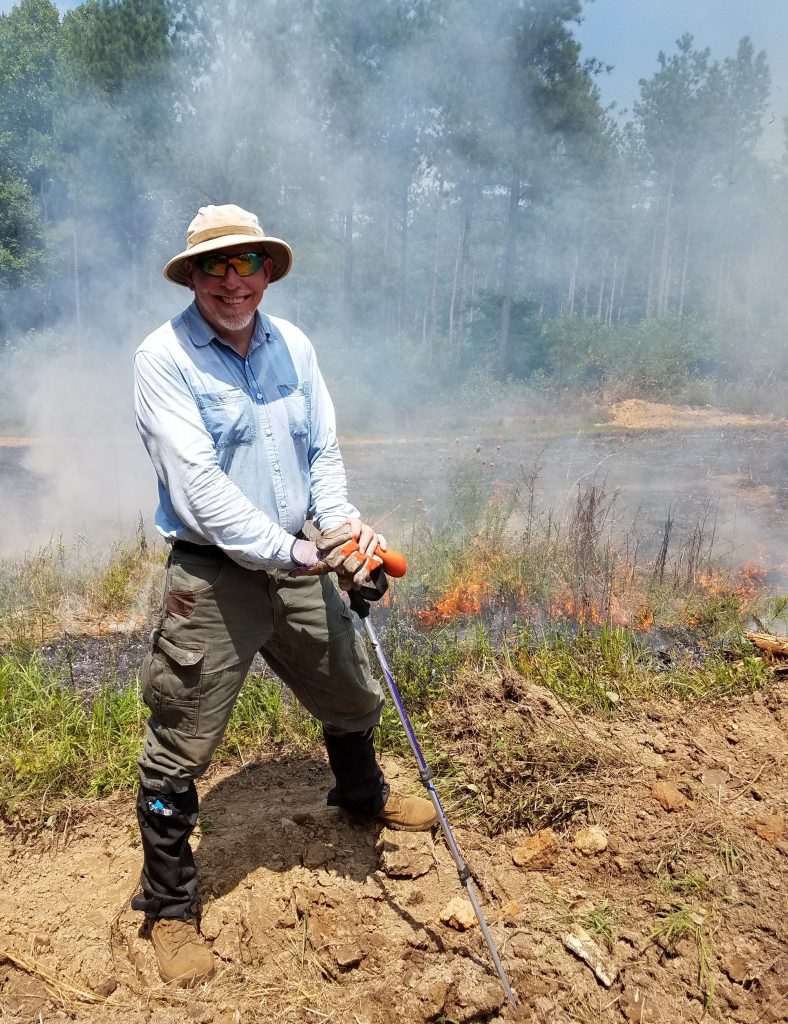
Our goal was to burn out the area with the turpentine beetles and that we accomplished. The secondary goal of cleaning up brush up to the creek, not so much.
The ground was wet. I thought this was good, since I didn’t want to bake the roots and kill trees. Unfortunately, the vegetation did not carry the fire well. We just gave up burning one of the points we had planned. It was covered in ferns and hog peanuts that just would not cooperate.
Just as well. We plan to do burn the larger area in November or December. If the fire gets into the area we tried to burn, that will be okay. It will back down to the stream. If it does not, that is okay too.
It was interesting to watch the fire behavior. We got a patchy burn, with some places not burned at all. The most interesting visual for me was watching the fire go up the side of a tree following a poison ivy vine. I didn’t think there was much chance that it would get into the tree and that was correct. Poison ivy vines are hairy. That was what was burning. It petered out and the vine fell off.
First picture is me at the fire line. Adam Smith took it. Next is DoF starting fire in the woods. Picture #3 shows my longleaf. I just think they look really good. Next is the bald cypress. I was using my cutter around them, so that we can protect them from fire. Last shows some of the devil’s walking stick, one of my new favored plants.
What do you admire about your parents
My story worth for this week. A little repetitive but I think still good. “What do you admire about your parents?”
My father Never missed a day at work
My father went to work every day. I do not remember him missing even one day of work for any reason at all. He went to work when he felt good; he went to work when he felt bad. He never needed a “mental health day.” His job was physically hard and not fun intellectually, yet he persisted to support his family. He taught me that all work deserved respect and that you earned self-respect by the work you did. He lived simply and did not take much for himself, and he did not complain. His hard work and frugality made me think that we were rich when I was a kid. Only as an adult did I come to realize that we were comparatively poor. My father never finished 10th Grade, yet his constant reading gave him an admirable education, so he could hold his own in intellectual discussions with guys like me with fancy pants educations.
Heroic experiences
My father served the USA in World War II in the Army Air Corps. He got seven battle stars and a purple heart in the Battle of the Bulge. Yet he talked about it so little that I was only vaguely aware of his record. He was a union steward (longshoreman) when I was a little kid. He later soured on the union. I have no idea why. But never on the “working man.” He had that quiet dignity of the greatest generation. Don’t brag about the things you have done and certainly do not claim credit for things you are “gonna do.”
One memory vignette – As I said, he never much talked about his war experience, but there was one time when I saw the memory affect him. I had a Pink Floyd song called “Echoes.” It started with the sonar ping sound. This upset the old man, and he was rarely upset. It evidently reminded him of being on a troop ship crossing the Atlantic infested by Nazi U-Boats. He would not elaborate.
Love of education
Despite his own lack of formal education (maybe because), my father just assumed I would go to college and passed that to me. This is something I did not appreciate until I was an adult. Most people in my socioeconomic group did not go to college. We had no family history of higher education, and the old man knew nothing about it in practical terms, but he managed to boost my sister and me beyond what he could do or even understand.
My mother
Giving her a fair shake
I worry that I don’t give my mother a fair shake. A lot that I know about my father I learned when I was an adult, but I never knew my mother when I was an adult, since she died when I was seventeen. My impressions are a those of a child, at best teenager, but I can see a lot to admire with my adult experience.
Do for others and make it look natural
My mother was a very generous and unselfish person. As with my father, I only really understood what she did for me, sacrificed for me after I was an adult and after she was gone. As I wrote elsewhere, all I needed do was to mention an interest in a subject and a book about that subject would soon appear. Before I could go there alone, she took me to our neighborhood library – Llewellyn – and introduced me to the books there. When I got old enough to go there myself, she still always looked at the books I brought home and asked me about them. This was harder than I thought. She had to do some research about the subject, a much harder task in those pre-Internet days.
She always put others before herself, but she did it in such an unselfish way that the recipients were not always aware. She would work very hard on something and then make it look like it was no trouble. It took a lot of work for her to make things look spontaneous. I am not sure this is a good thing in working life, since you don’t get credit. I give her credit now, but that is a little too late. I would castigate my childish self, but there is no point. All I can do now is “pay it forward.” I think she would have been content with that, since it is behaving like she did.
The family ecology – sisters Florence & Lorainne
I have talked about my mother and my father individually. That gives an incomplete picture. As a couple, they were a team and as a team they were part of a bigger ecology of our extended family, mostly my mother’s sisters and my cousins. The total of this system was much greater than the sum of its parts. This became very clear after my mother died. I was almost an adult, going into my last year in HS. My sister Chris is two years younger. We were old enough to be autonomous but not old enough to take care of ourselves, especially emotionally. My mother’s sisters Florence and Lorraine (they don’t give kids those sorts of names anymore) stepped right in. They helped make meals, helped my father adjust emotionally, helped my sister and me adjust. They finished the job my mother had begun.
Intellectual life
My aunts, especially my Aunt Lorraine, were very well read. My aunt Lorraine and I often discussed history. More a debate was when we discussed biology. My aunts had serious doubts about the theory of evolution. Me on the other hand … the only “advanced” course they ever put me into was advanced biology. My teacher told us that it was impossible to understand biology w/o reference to the theory of evolution and I thought he was 100% right. Suffice it to say, we disagreed. You can disagree w/o being disagreeable. My aunts made arguments that I thought were completely wrong but very well presented. I respected them and their faith. They respected of me and my heretical ideas. Usually at the end of the discussion they would praise my knowledge and persistence but point out that I didn’t know everything. My erudite Aunt Lorraine would sometimes quote Shakespeare, “There are more things in heaven and Earth, Horatio, / Than are dreamt of in your philosophy.” I would joke that my name was not Horatio, and then would wander off back to school or wherever I was going.
My pictures are not part of the story. They are from Mosaic this morning. Chrissy & I went to a morning movie and then lunch. Last picture is a tiger swallowtail on Chrissy’s flowers this morning.
Intelligence Traps

Intelligent people do not make better choices than their less gifted colleagues. In fact, very intelligent people often tend to be amazingly stupid about “common sense” decisions. Let’s add two caveats. The first is within a reasonable range. There are people with such low intelligence that they cannot make good choices at all and there are subjects that require higher intelligence to master, but generally once you get “enough” it stops being useful to have more. The second caveat relates to what we call intelligence. Even though we don’t talk much about IQ anymore, we implicitly judge intelligence by the types of things IQ test measure.
The author begins by talking about very intelligent people who just believe very stupid things. Arthur Conan Doyle, the creator of the supremely rational Sherlock Holmes, believe is spiritualism and fairies, for example. One of the intelligence traps is that intelligent people can think up all sorts of good reasons to believe dumb things. They are used to people deferring to them and people do.
High intelligence is like a powerful engine. It can drive the car very fast, but it needs a competent driver, else it drives very fast in the wrong direction.
I thought “The Intelligence Trap” was very much like a book I read in the 1990s called “Decision Traps.” “Decision Traps” was one of the books that most influenced my life. If it makes me seem shallow because I mention such a book and not some wonderful classic, well too bad. “Decision Traps” featured a lot of useful wisdom and introduced me to the work of Kahneman and Tversky, before they were so famous. It mentioned specific paths that smart people go down that take them the wrong way. “The Intelligence Trap” does that too. It is in many ways and updated version, so I recommend it. It is an entertaining book too. The thoughts are not profound and I have read most of the examples elsewhere, but it is useful to remind ourselves.
Confirmation bias
“The Intelligence Trap” talks about confirmation bias, for example. I first came across the term in “Decision Traps” and the problem has become worse since 1990. Internet is a confirmation bias engine and it does it so seamlessly that we often do not even see it. One way I counter it is to have lots of Facebook friends who don’t agree with me. I tolerate even the abusive ones, since their points of view may be right, sometimes. The flaw in my plan is that some Facebook friends who disagree with me unfriend me, thereby denying themselves the benefit of my contrary wisdom and me of theirs.
This is related to motivated reasoning. This is when you are looking for information to bolster positions you already support or disparage information that contradicts.
Meta forgetting
I like to meet authors, but I always try to cut them a lot of slack. They often know less than is contained in the pages of their books. This makes perfect sense. When they finished the book, they were at the peak of their knowledge on that subject and forgetting set in that same day.
This happens to all of us. We can perceive it with subjects like math or language, but we miss it with other subjects. We tend to think we know all we did on the day we got the passing grade on the tests. We don’t. Good to recall and relearn if we need.
Hard is better than easy learning
Related is the idea that difficulty is good when we are trying to learn. We can often get better short term results when we concentrate. Out long-term recall and use of information is improved when we struggle a little, when we forget and have to relearn. This is one reason why crash courses tend to produce short-term wins, but long term don’t make much of an impression.
A man has gotta know his limitations
Socrates got it right. I liked that the author made many references to literature and philosophy. He mentioned the wisdom of Socrates and Solomon. Socrates was wise precisely because he knew that he didn’t know. He talked to all kinds of experts. These guys knew a lot about their specialties, but they lacked wisdom because they thought they knew more than they did about other things. There is the difference between knowledge and wisdom. Solomon’s case was different. He was said to be one of the wisest men ever, but he could not run his kingdom or his personal life well. In the wisdom of that great American philosopher Clint Eastwood – “A man has gotta know his limitations.”
Related to this is expert entrenchment. When people know a lot, they think they know everything about it. They may not know as much as they think, but even in the areas of their specialties information changes. Sometimes the super stars are the ones least likely to want to change. They are doing well with the status quo. This can also lead to functional stupidity. Functional because it works at least in the short term. Productivity may be boosted in the short-term if you do not question and just get it done. It also might help with career success if you don’t rock the boat.
Fixed mind set
My father taught me many useful things. One of the not useful things that I had to jettison was a fixed mind set. He told me that either you were good at something or not. This was not strictly wrong, but it implies that you cannot change. In fact, we have lots of choices. Our futures need not be slaves of our pasts or of our CURRENT capacity.
The author gives the example of Richard Feynman, one of the top physicists of the 20th Century. Teachers didn’t think much of Feynman. He was self-motivated, which meant that he did not always study the things teachers thought important. He was also not incredibly intelligent on those traditional IQ measures. But he never stopped learning. He was always curious and looking for new information in wide varieties of subjects, not only physics. As a child, he was below average in language, but he kept on going and ended up mastering several foreign languages.
The race is not always won by the fastest, but by the one who just keeps running.
The race may be won by the fastest, but sometimes the fastest don’t know that the race is never over. You can keep on going and guys like Feynman just keep on going.
I learned this lesson from my friend David Brooks (the FSO, not the author. David, sadly, died a couple years ago.) What I learned from him was the usefulness of persistence in language learning. David seemed to have little talent learning Polish. He managed to get a 3/3 (enough to pass) but it was bad, so bad that even non-Poles like me noticed. But he kept on going. By the time he was done in Poland, he was among the best speakers. I took his lesson when I was in Brazil. I tried to keep on speaking and learning Portuguese until the day I left Brazil. Not sure how good I got, but I could communicate better.
Better in foreign language
Speaking of foreign language, if you know a foreign language well you know that your personality is different when you are speaking it versus your native language. I thought I was often a better diplomat in Portuguese than I was in English because I had to listen more carefully, reflect more and talk more thoughtfully. “The Intelligence Trap” talks about studies that indicate that people are more rational when explaining something in a language that is not their native one. The idea is that it slows you down so you don’t make the snap judgements. Even when you are very fluent, using a foreign language sets up a firebreak.
Tolerance of ambiguity
Finally, in my memory, if not in the book, is a tolerance of ambiguity. People who make better decisions often are those that can hold contradictory ideas at the same time and not go crazy. They do not feel the urgent need to resolve questions and so can take ideas from more sources. Sometimes you don’t need to resolve things. Sometimes it just doesn’t matter and so we should just leave it alone. Even if we “know” we are right, it does not mean others are wrong if they believe the opposite. Hard to resolve. Just lighten up.



